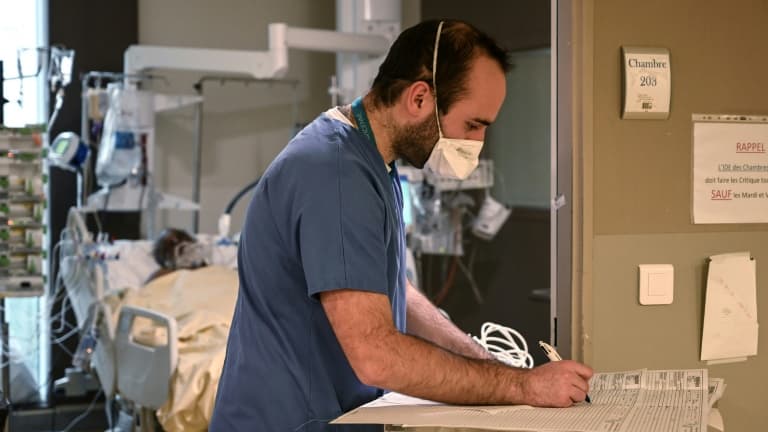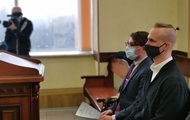The Ile-de-France region is not confined, while the lack of intensive care beds has been felt for several days already.
The tension in the resuscitation services of Île-de-France has continued to increase in recent days. 1,177 people are currently hospitalized for serious cases, and the bed occupancy rate – compared to initial capacities, before the crisis – is over 102%, according to official data released on Tuesday. Prime Minister Jean Castex said in the evening on BFMTV that the time had “come to consider arrangements for the Ile-de-France region”, either a potential confinement – the weekend or the whole week.
But even if a containment of the region were announced on Wednesday or Thursday, hospitals would not see the health effect for at least two weeks, because those infected currently are the hospitalized tomorrow. And in the meantime, the number of patients could continue to increase: invited to RTL, the boss of the AP-HP mentioned forecasts of up to 2,800 patients in intensive care in Île-de-France on April 6, more than the first wave.
However, the means available to reduce this tension are weak, and the remedies used during the first wave cannot necessarily be put in place this time.
· Deprogram other operations?
In order to make room for the hospital, and especially to make more caregivers available to take care of Covid-19 patients, the Île-de-France Regional Health Agency asked the establishments last week AP-HP to deprogram 40% of their medical and surgical activities.
But “the doctors are a little reluctant to deprogram a certain number of important interventions. We are currently around 20% of deprogramming only”, declares this Wednesday the doctor Alain Ducardonnet, health specialist for BFMTV.
Besides the cost in terms of public health, because the care of sick people is delayed, this solution has a limited effect. Indeed, as long as restrictive measures are not taken to stem the increase in the epidemic, hospitals will continue to fill up with Covid-19 patients, regardless of the percentage of deprogramming.
· Mobilize caregivers from other regions?
During the first wave, doctors, nurses and caregivers had been called to regions of France more preserved by the epidemic, to strengthen the areas under pressure. This staff could make it possible to relieve the teams of Parisian hospitals and to open new resuscitation beds in Île-de-France.
But “the provincial staff is also overloaded today”, notes Christophe Prudhomme, spokesperson for the association of emergency physicians in France. However, “there are areas where we have more leeway than in Île-de-France, and on a voluntary basis, we did this last spring, we can find enough staff to open beds” . “It is not the choice which was made, it is a monumental error”, according to him.
· Call on the health reserve?
The other helping hand received by caregivers in areas under pressure came from the health reserve. It brings together health professionals, serving as students or retirees, and provides support in crisis situations. An appeal was launched in October to mobilize this reserve, present during the first wave, but the volunteers had been reduced.
In recent months, reservists have in fact hardly responded to calls, because they are exhausted or already occupied, explains Public Health France to BFMTV.
· Create military hospitals?
To make up for the lack of beds, a military hospital had been installed in Mulhouse (Haut-Rhin), during the first confinement. It is something “which takes a certain time to be put in place”, explains to BFMTV Hervé Grandjean, spokesman for the Ministry of the Armed Forces, stressing that this would mobilize a lot of personnel in the military.
“To give you an example in Mayotte at the moment we have ten resuscitation beds open, this requires the deployment of fifty personnel from the Army health service,” he explains. For that of Mulhouse “it had taken about ten days to assemble this element”.
· What about patient transfers?
Patient transfers have made it possible on several occasions in one year of the epidemic to free up beds in regions reaching saturation point at the hospital level. Evacuations from the Ile-de-France region have been proposed since last week, but have not met with the expected success. Few patients are in fact eligible for medical evacuation, and families regularly refuse to give their consent.
“It is quite normal that this worries the families”, explains on BFMTV Frédéric Adnet, head of the emergency department of the Avicenne hospital. “Imagine one of your relatives who is extremely ill, his vital prognosis is at stake, hospitalized in intensive care, and suddenly you are told that he is going to be transported to the other end of France to free a bed. needs these beds to accommodate new patients. “
—

